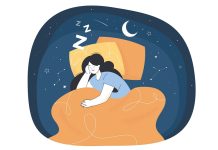
For many years, anxiety and sleeplessness have troubled countless individuals. To combat these issues, a specific group of medications known as benzodiazepines was developed, offering much-needed relief.
Originally, these drugs were created to replace barbiturates, an older class of drugs with their own set of problems.
While benzodiazepines have proven effective in managing symptoms that other treatments couldn’t touch, a recent study from Yale University sheds light on a concerning aspect: the potential for addiction.
Benzodiazepines operate by targeting receptors in the brain known as GABA receptors, which help to reduce nervous activity, thereby inducing calmness and sleepiness. However, their effectiveness comes with a caveat.
The study found that within about four weeks, half of the patients using these drugs required higher doses to achieve the same calming effect, a clear sign of growing tolerance which can lead to dependence.
Despite their slower onset of addictive potential compared to barbiturates, benzodiazepines are not without risks. Long-term users often find it challenging to stop because withdrawal can trigger severe symptoms such as heightened anxiety, panic attacks, and tremors.
Yet, due to their effectiveness, the prescription of these drugs has skyrocketed. Between 1996 and 2013, the number of prescriptions in adults rose by 67%, reaching a staggering 135 million annually, with the dosage per patient also seeing a substantial increase.
The growing dependency on benzodiazepines has sparked concerns among researchers. They warn of a potential crisis similar to the opioid epidemic, given the high rates of prescription and misuse.
The situation is particularly alarming as these medications are increasingly being diverted from their lawful prescriptions into the illicit drug market.
This diversion is not only a legal issue but also a public health concern, especially among teenagers where addiction rates for benzodiazepines have now surpassed those of opioids.
The danger increases significantly when benzodiazepines are used in combination with opioids, whether prescribed or not. Both drug types suppress the central nervous system, which can lead to severe side effects like respiratory difficulties, overdose, or even death.
Recent years have seen a sharp rise in benzodiazepine-related overdoses, a trend that might continue if not addressed.
Experts believe that primary care systems play a crucial role in averting a full-blown benzodiazepine crisis.
Many doctors find themselves prescribing not only benzodiazepines but also other potent medications like SSRIs and antipsychotics, often feeling out of their depth with the complexity of symptoms presented by their patients.
The underlying issue, according to experts, is not just the drugs themselves but the over-prescription and inadequate management of these medications.
As benzodiazepine overdose deaths have climbed exponentially, it is becoming increasingly clear that the real crisis might be the over-reliance on these drugs as a quick fix rather than addressing underlying health issues more comprehensively.
Understanding the risks and managing prescriptions responsibly could be key in preventing benzodiazepines from following the same tragic path as opioids.
As we move forward, it’s crucial that both healthcare providers and patients are educated about the risks and proper use of these powerful drugs to mitigate their potentially life-altering consequences.
For more information about ADHD, please see recent studies about Nutrition’s role in managing ADHD: what you need to know and results showing that Food additives and ADHD: what parents should know.
If you care about ADHD, please read studies about 5 signs you have ADHD, not laziness, and new drug to reduce daydreaming, fatigue, and brain sluggishness in ADHD.
Copyright © 2024 Knowridge Science Report. All rights reserved.



